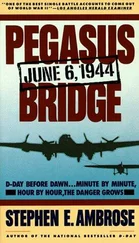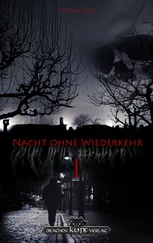Stephen Ambrose - Band of Brothers
Здесь есть возможность читать онлайн «Stephen Ambrose - Band of Brothers» весь текст электронной книги совершенно бесплатно (целиком полную версию без сокращений). В некоторых случаях можно слушать аудио, скачать через торрент в формате fb2 и присутствует краткое содержание. Жанр: История, на английском языке. Описание произведения, (предисловие) а так же отзывы посетителей доступны на портале библиотеки ЛибКат.
- Название:Band of Brothers
- Автор:
- Жанр:
- Год:неизвестен
- ISBN:нет данных
- Рейтинг книги:4 / 5. Голосов: 1
-
Избранное:Добавить в избранное
- Отзывы:
-
Ваша оценка:
- 80
- 1
- 2
- 3
- 4
- 5
Band of Brothers: краткое содержание, описание и аннотация
Предлагаем к чтению аннотацию, описание, краткое содержание или предисловие (зависит от того, что написал сам автор книги «Band of Brothers»). Если вы не нашли необходимую информацию о книге — напишите в комментариях, мы постараемся отыскать её.
Band of Brothers — читать онлайн бесплатно полную книгу (весь текст) целиком
Ниже представлен текст книги, разбитый по страницам. Система сохранения места последней прочитанной страницы, позволяет с удобством читать онлайн бесплатно книгу «Band of Brothers», без необходимости каждый раз заново искать на чём Вы остановились. Поставьте закладку, и сможете в любой момент перейти на страницу, на которой закончили чтение.
Интервал:
Закладка:
Maj. Richard Winters also wrote an account of his life after the war: "On separation from the service on November 29, 1945, Lewis Nixon invited me to come to New York City and meet his parents. His father offered me a job and I became personnel manager for the Nixon Nitration Works, Nixon, New Jersey. While working, I took advantage of the G.I. Bill and took courses in business and personnel management at Rutgers University. In 1950 I was promoted to General Manager of Nixon Nitration Works.
"I married Ethel Estoppey in 1948. We have two children. Tim has an M.A. in English from Penn State and Jill a B.A. from Albright College.
"I was recalled to the army for the Korean War. At Fort Dix, New Jersey, I was put on the staff as regimental plans and training officer. After discharge, I returned to Pennsylvania, to farm and to sell animal health products and vitamin premixes to the feed companies. In 1951 I bought a farm along the foothills of the Blue Mountain—seven miles east of Indiantown Gap. That's where I find that peace and quiet that I promised myself on D-Day."
This is typical Winters understatement. He lives modestly, on his farm and in a small town house in Hershey, but he is a wealthy man who achieved success by creating and marketing a new, revolutionary cattle food and other animal food products.
He is also the gentlest of men. In July 1990, when he finished telling me about practically wiping out an entire German rifle company on the dike in Holland on October 5, 1944, we went for a walk down to his pond. A flock of perhaps thirty Canadian geese took off; one goose stayed behind, honking plaintively at the others. Winters explained that the bird had a broken wing.
I remarked that he ought to get out a rifle and shoot the goose before a fox got her. "Freeze her up for Thanksgiving dinner."
He gave me an astonished glance. "I couldn't do that!" he said, horrified at the thought.
He is incapable of a violent action, he never raises his voice, he is contemptuous of exaggeration, self-puffery, or posturing. He has achieved exactly what he wanted in life, that peace and quiet he promised himself as he lay down to catch some sleep on the night of June 6-7, 1944, and the continuing love and respect of the men he commanded in Easy Company in World War II.
In one of his last newsletters, Mike Ranney wrote: "In thinking back on the days of Easy Company, I'm treasuring my remark to a grandson who asked, 'Grandpa, were you a hero in the war?' " 'No,' I answered, 'but I served in a company of heroes.' "
PHOTOGRAPHS
ACKNOWLEDGMENTS AND SOURCES
In the fall of 1988, the veterans from Easy Company, 506th Parachute Infantry Regiment, 101st Airborne Division, held a reunion in New Orleans. Along with my assistant director of the Eisenhower Center at the University of New Orleans, Ron Drez, I went to their hotel to tape-record a group interview with them about their D-Day experience, as a part of the Center's D-Day Project of collecting oral histories from the men of D-Day. The interview with Easy Company was especially good because the company had carried out a daring and successful attack on a German battery near Utah Beach.
When Maj. Richard Winters, an original member of the company, later company C.O., finally C.O. of 2nd Battalion, read the transcript from the interview, he was upset by some inaccurate and exaggerated statements in it. He wanted to set the record straight. In February 1990, Winters, Forrest Guth, and Carwood Lipton came to Pass Christian, Mississippi, to visit Walter Gordon. I live in the village of Bay St. Louis, across the bay from Pass Christian, so Gordon is my neighbor. He called to ask if the Easy Company veterans could do a follow-up interview. Of course, I said, and invited them to our home for a meeting and dinner. We spent the afternoon in my office, maps spread out, tape-recorder running. Later, at a roast beef feast prepared by my wife, Moira, the men sketched out for me their experiences after D-Day in Normandy, Holland, Belgium, Germany, and Austria.
They had all read my book Pegasus Bridge, which the Eisenhower Center gives to every veteran who does an interview for us. Winters suggested that a history of Easy Company might make a good subject for a book.
At that time I was working on the third and final volume of a biography of Richard Nixon. Winters' idea appealed to me for a number of reasons. When I finished Nixon, I wanted to go back to military history. I intended to do a book on D-Day, but did not want to begin the writing until 1992 with the intention of publishing it on the 50th anniversary, June 6, 1994.1 have reached a point in my life where, if I am not doing some writing every day, I am not happy, so I was looking for a short book subject on World War II that would have a connection with D-Day.
A history of E Company fit perfectly. I knew the story of the British 6th Airborne Division on the far left flank on D-Day thanks to my research and interviewing for the Pegasus Bridge book. Getting to know the story of one company of the 101st on the far right flank was tempting.
There was an even more appealing factor. There was a closeness among the four veterans sitting at our dinner table that was, if not quite unique in my quarter-century experience of interviewing veterans, certainly unusual. As they talked about other members of the company, about various reunions over the decades, it became obvious that they continued to be a band of brothers. Although they were scattered all across the North American continent and overseas, they knew each others' wives, children, grandchildren, each others' problems and successes. They visited regularly, kept in close contact by mail and by phone. They helped each other in emergencies and times of trouble. And the only thing they had in common was their three-year experience in World War II, when they had been thrown together quite by chance by the U.S. Army.
I became intensely curious about how this remarkable closeness had been developed. It is something that all armies everywhere throughout history strive to create but seldom do, and never better than with Easy. The only way to satisfy my curiosity was to research and write the company history.
In May 1990, Drez attended the company's reunion in Orlando, Florida, where he video-recorded eight hours of group interview. That same month I did three days of interviewing with Gordon in my office. In July, I went to Winters' farm in Pennsylvania, where I did four days of interviewing. On the fourth day, a half-dozen men from the company living on the East Coast drove to the farm for a group interview. Later in 1990 I spent a weekend at Carwood Lipton's home in Southern Pines, where Bill Guarnere joined us. I flew to Oregon to spend another weekend with Don Malarkey and a group of West Coast residents.
I interviewed a dozen other company members over the telephone and have had an extensive correspondence with nearly all living members of the company. At my urging ten of the men have written their wartime memoirs, ranging from ten to 200 pages. I have been given copies of wartime letters, diaries, and newspaper clippings.
In November 1990, Moira and I toured Easy's battle sites in Normandy and Belgium. I interviewed Frenchmen from the area the company fought over who had been living there at the time. In July 1991, we visited the scenes of Easy's battles throughout Europe with Winters, Lipton, and Malarkey. Winters, Moira, and I spent an afternoon with Baron Colonel Frederick von der Heydte at his home near Munich.
Mrs. Barbara Embree, widow of Pvt. David Webster, gave me copies of his letters to his parents and his book-length manuscript on his World War II memoirs. Webster was a keen observer and excellent writer. His contribution was invaluable.
Currahee!, the scrapbook written by Lt. James Morton and published by the 506th PIR in 1945, was also invaluable. Don Malarkey gave me a copy, most generous on his part as it is a rare book. Rendezvous with Destiny, the history of the 101st Airborne, written by Leonard Rapport and Arthur Northwood, provided the big picture plus facts, figures, details, atmosphere, and more. Other sources are noted in the text.
Читать дальшеИнтервал:
Закладка:
Похожие книги на «Band of Brothers»
Представляем Вашему вниманию похожие книги на «Band of Brothers» списком для выбора. Мы отобрали схожую по названию и смыслу литературу в надежде предоставить читателям больше вариантов отыскать новые, интересные, ещё непрочитанные произведения.
Обсуждение, отзывы о книге «Band of Brothers» и просто собственные мнения читателей. Оставьте ваши комментарии, напишите, что Вы думаете о произведении, его смысле или главных героях. Укажите что конкретно понравилось, а что нет, и почему Вы так считаете.



![Stephen Ambrose - Citizen Soldiers [Condensed]](/books/346737/stephen-ambrose-citizen-soldiers-condensed-thumb.webp)
![Stephan Orth - Behind Putin's Curtain - Friendships and Misadventures Inside Russia [aka Couchsurfing in Russia]](/books/415210/stephan-orth-behind-putin-s-curtain-friendships-a-thumb.webp)





